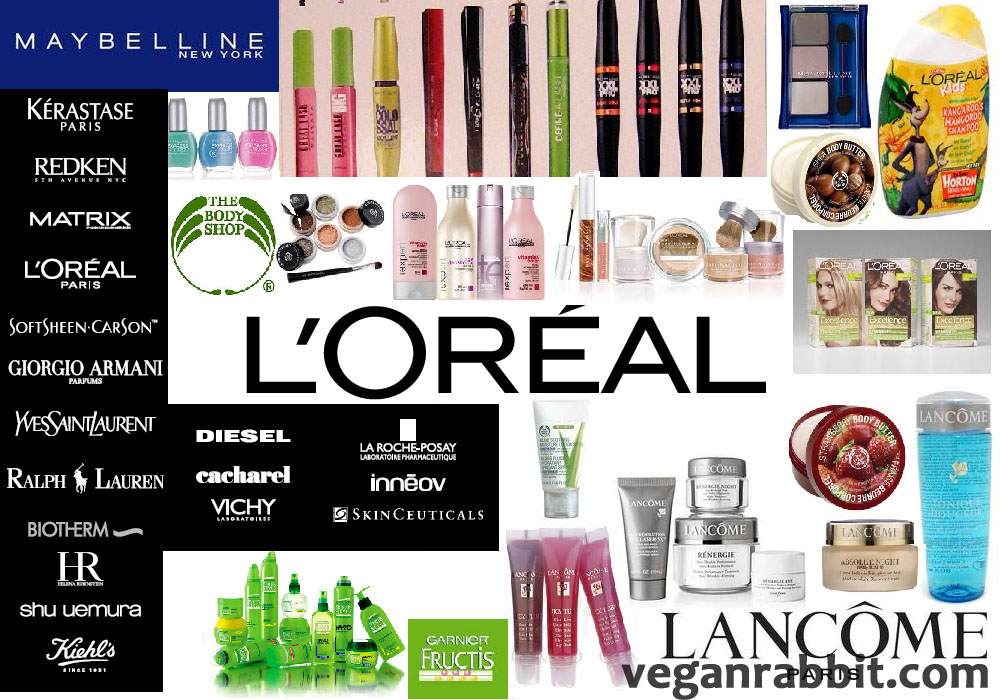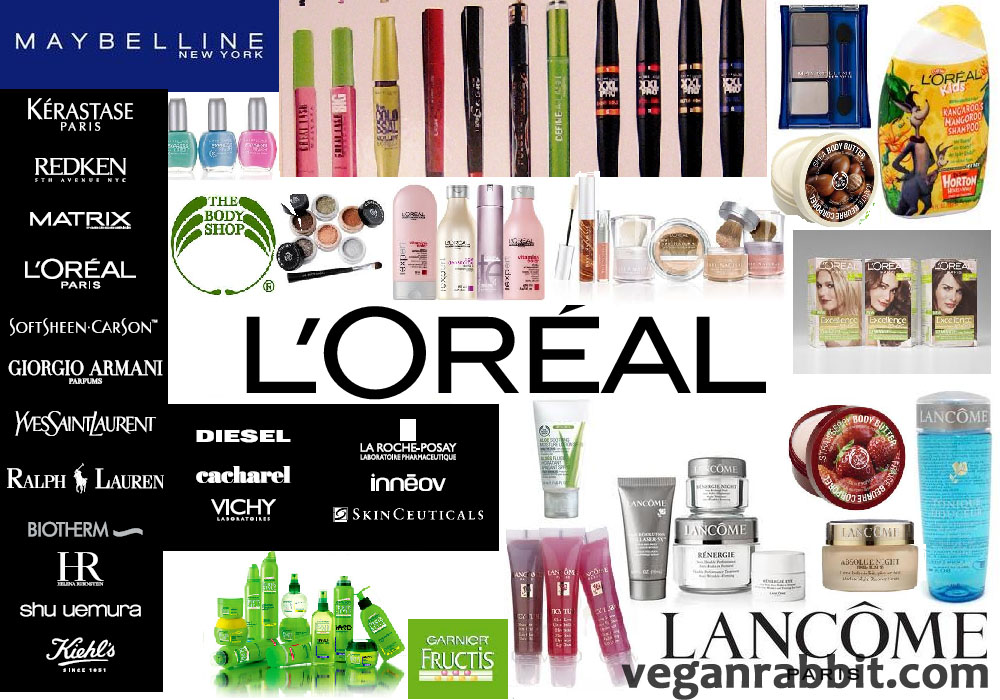L’Oréal is NOT cruelty-free or vegan.
This means L’Oréal tests on animals directly or through third-parties and uses animal-derived ingredients. Some brands that fall under this category only test on animals where required by law, which means they’re not cruelty-free.
Brands currently owned by L’Oréal:
[table id=16 /]

Company Overview
L’Oreal was founded in 1909 in France. The company’s early history is deeply rooted in violent anti-Semitic Nazi fascism. They have since issued numerous apologies for it and claim to no longer ascribe to any bigoted beliefs.
Today, L’Oreal is the world’s largest cosmetics company. Their steadily-growing portfolio includes many well-known brands in hair color, skin care, sun protection, make-up, perfume, and hair care.
Animal Testing Policy
Despite being a leader in the development of alternatives to cosmetics animal testing, L’Oréal DOES test on animals where required by law. But this doesn’t stop them from trying to project a cruelty-free image to consumers:
“In 1989, L’Oréal completely ceased testing its products on animals, thus 14 years before the regulation required so. Today, L’Oréal no longer tests its ingredients on animals and no longer tolerates any exception to this rule.”
BUT…
“Certain health authorities may nevertheless decide to conduct animal tests themselves for certain cosmetic products, as it is still the case in China.”
This statement is so carefully worded because they’re trying to create distance between their company and animal testing done to comply with mainland China’s archaic laws.
The fact remains that no one is forcing them to sell products in mainland China. They could easily join the growing number of companies taking a stand against animal testing by refusing to sell in mainland China, but they have not done so, which means they are complicit.
It’s also worth noting that L’Oréal owns a research and development facility in Shanghai, China.
Read their full animal testing policy.
Looking for cruelty-free brands?
Browse my curated list of cruelty-free brands to find brands that are 100% vegan and 100% cruelty-free at every level, from parent company to subsidiary brand to ingredient manufacturer.

